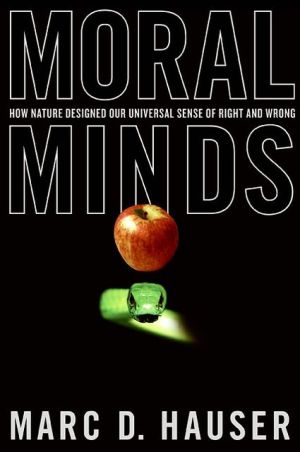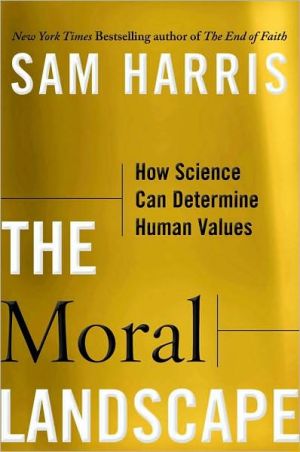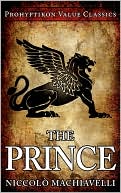Moral Minds: How Nature Designed Our Universal Sense of Right and Wrong
Marc Hauser's eminently readable and comprehensive book Moral Minds is revolutionary. He argues that humans have evolved a universal moral instinct, unconsciously propelling us to deliver judgments of right and wrong independent of gender, education, and religion. Experience tunes up our moral actions, guiding what we do as opposed to how we deliver our moral verdicts.\ For hundreds of years, scholars have argued that moral judgments arise from rational and voluntary deliberations about what...
Search in google:
Marc Hauser's eminently readable and comprehensive book Moral Minds is revolutionary. He argues that humans have evolved a universal moral instinct, unconsciously propelling us to deliver judgments of right and wrong independent of gender, education, and religion. Experience tunes up our moral actions, guiding what we do as opposed to how we deliver our moral verdicts.For hundreds of years, scholars have argued that moral judgments arise from rational and voluntary deliberations about what ought to be. The common belief today is that we reach moral decisions by consciously reasoning from principled explanations of what society determines is right or wrong. This perspective has generated the further belief that our moral psychology is founded entirely on experience and education, developing slowly and subject to considerable variation across cultures. In his groundbreaking book, Hauser shows that this dominant view is illusory.Combining his own cutting-edge research with findings in cognitive psychology, linguistics, neuroscience, evolutionary biology, economics, and anthropology, he examines the implications of his theory for issues of bioethics, religion, law, and our everyday lives. The Washington Post - Mihaly Csikszentmihalyi The book is full of interesting cases describing the changes in moral behavior and reasoning that brain damage can cause, and it includes helpful summaries and moral puzzles for readers to test their ethical sensibilities.
Moral Minds\ How Nature Designed Our Universal Sense of Right and Wrong \ \ By Marc Hauser \ HarperCollins Publishers, Inc.\ Copyright © 2006 Marc Hauser\ All right reserved.\ ISBN: 0060780703 \ \ \ Chapter One\ What's wrong?\ \ You first parents of the human race . . . who ruined yourself for an apple, what might you have done for a truffled turkey?\ --Brillat-Savarin1\ \ Hundreds of self-help books and call-in radio stations, together with the advice of such American ethic gurus as William Bennett and Randy Cohen, provide us with principled reasons and methods for leading a virtuous life. Law schools across the globe graduate thousands of scholars each year, trained to reason through cases of fraud, theft, violence, and injustice; the law books are filled with principles for how to judge human behavior, both moral and amoral. Most major universities include a mandatory course in moral reasoning, designed to teach students about the importance of dispassionate logic, moving from evidence to conclusion, checking assumptions and explicitly stating inferences and hypotheses. Medical and legal boards provide rational and highly reasoned policies in order to set guidelines for morally permissible, forbidden, and punishable actions. Businesses set up contracts to clarify the rules of equitable negotiation and exchange. Military leaderstrain soldiers to act with a cool head, thinking through alternative strategies, planning effective attacks, and squelching the emotions and instincts that may cause impulsive behavior when reasoning is required to do the right thing. Presidential committees are established to clarify ethical principles and the consequences of violations, both at home and abroad. All of these professionals share a common perspective: conscious moral reasoning from explicit principles is the cause of our moral judgments. As a classic text in moral philosophy concludes, "Morality is, first and foremost, a matter of consulting reason. The morally right thing to do, in any circumstance, is whatever there are the best reasons for doing."2\ This dominant perspective falls prey to an illusion: Just because we can consciously reason from explicit principles--handed down from parents, teachers, lawyers, or religious leaders--to judgments of right and wrong doesn't mean that these principles are the source of our moral decisions. On the contrary, I argue that moral judgments are mediated by an unconscious process, a hidden moral grammar that evaluates the causes and consequences of our own and others' actions. This account shifts the burden of evidence from a philosophy of morality to a science of morality.\ This book describes how our moral intuitions work and why they evolved. It also explains how we can anticipate what lies ahead for our species. I show that by looking at our moral psychology as an instinct--an evolved capacity of all human minds that unconsciously and automatically generates judgments of right and wrong--that we can better understand why some of our behaviors and decisions will always be construed as unfair, permissible, or punishable, and why some situations will tempt us to sin in the face of sensibility handed down from law, religion, and education. Our evolved moral instincts do not make moral judgments inevitable. Rather, they color our perceptions, constrain our moral options, and leave us dumbfounded because the guiding principles are inaccessible, tucked away in the mind's library of unconscious knowledge.\ Although I largely focus on what people do in the context of moral conflict, and how and why they come to such decisions, it is important to understand the relationship between description and prescription--between what is and what ought to be.\ In 1903, the philosopher George Edward Moore noted that the dominant philosophical perspective of the time--John Stuart Mill's utilitarianism--frequently fell into the naturalistic fallacy: attempting to justify a particular moral principle by appealing to what is good.3 For Mill, utilitarianism was a reform policy, one designed to change how people ought to behave by having them focus on the overall good, defined in terms of natural properties of human nature such as our overall happiness. For Moore, the equation of good with natural was fallacious. There are natural things that are bad (polio, blindness) and unnatural things that are good (vaccines, reading glasses). We are not licensed to move from the natural to the good.\ A more general extension of the naturalistic fallacy comes from deriving ought from is. Consider these facts: In most cultures, women put more time into child care than men (a sex difference that is consistent with our primate ancestors), men are more violent than women (also consistent with our primate past), and polygamy is more common than monogamy (consistent with the rest of the animal kingdom). From these facts, we are not licensed to conclude that women should do all of the parenting while men drink beers, society should sympathize with male violence because testosterone makes violence inevitable, and women should expect and support male promiscuity because it's in their genes, part of nature's plan. The descriptive principles we uncover about human nature do not necessarily have a causal relationship to the prescriptive principles. Drawing a causal connection is fallacious.\ Moore's characterization of the naturalistic fallacy caused generations of philosophers to either ignore or ridicule discoveries in the biological sciences. Together with the work of the analytic philosopher Gottlieb Frege, it led to the pummeling of ethical naturalism, a perspective in philosophy that attempted to make sense of the good by an appeal to the natural. It also led to an intellectual isolation of those thinking seriously about moral principles and those attempting to uncover the signatures of human nature. Discussions of moral ideals were therefore severed from the facts of moral behavior and psychology.\ The surgical separation of facts from ideals is, however, too extreme. Consider the following example:4\ \ Fact: The only difference between a doctor giving a child anesthesia and not giving her anesthesia is that without it, the child will be in agony during surgery. The anesthesia will have no ill effects on this child, but will cause her to temporarily lose consciousness and sensitivity to pain. She will then awaken from the surgery with no ill consequences, and in better health thanks to the doctor's work.\ Evaluative judgment: Therefore, the doctor should give the child anesthesia.\ \ \ \ Continues... \ \ \ \ Excerpted from Moral Minds by Marc Hauser Copyright © 2006 by Marc Hauser. Excerpted by permission.\ All rights reserved. No part of this excerpt may be reproduced or reprinted without permission in writing from the publisher.\ Excerpts are provided by Dial-A-Book Inc. solely for the personal use of visitors to this web site. \ \
Prologue : righteous voices1What's wrong?12Justice for all593Grammars of violence1114The moral organ1635Permissible instincts2426Roots of right3077First principles357Epilogue : the right impulse419
\ From Barnes & NobleHarvard professor Marc Hauser thinks that a radical rethinking about our ideas on morality is long overdue. In Moral Minds, he argues that, contrary to common belief, we don't reach moral decisions by consciously reasoning from principled explanations of societal belief. Instead, he asserts, we possess an inherent moral system; in other words, an ethical instinct. To bolster his case, he cites cutting-edge research in cognitive psychology, linguistics, neuroscience, evolutionary biology, economics and anthropology. A revolutionary look at a hot topic.\ \ \ \ \ Mihaly CsikszentmihalyiThe book is full of interesting cases describing the changes in moral behavior and reasoning that brain damage can cause, and it includes helpful summaries and moral puzzles for readers to test their ethical sensibilities.\ —The Washington Post\ \ \ Publishers WeeklyHow do humans develop their capacity to make moral decisions? Harvard biologist Hauser (Wild Minds) struggles to answer this and other questions in a study that is by turns fascinating and dull. Drawing on the linguistic theories of Noam Chomsky, Hauser argues that humans have a universal moral grammar, an instinctive, unconscious tool kit for constructing moral systems. For example, although we might not be able to articulate immediately the moral principle underlying the ban on incest, our moral faculty instinctually declares that incest is disgusting and thus impermissible. Hauser's universal moral grammar builds on the 18th-century theories of moral sentiments devised by Adam Smith and others. Hauser also asserts that nurture is as important as nature: "our moral faculty is equipped with a universal set of rules, with each culture setting up particular exceptions to these rules." All societies accept the moral necessity of caring for infants, but Eskimos make the exception of permitting infanticide when resources are scarce. Readers unfamiliar with philosophy will be lost in Hauser's labyrinthine explanations of Kant, Hume and Rawls, and Hauser makes overly large claims for his theory's ability to guide us in making more moral, and more enforceable, laws. (Sept. 1) Copyright 2006 Reed Business Information.\ \








